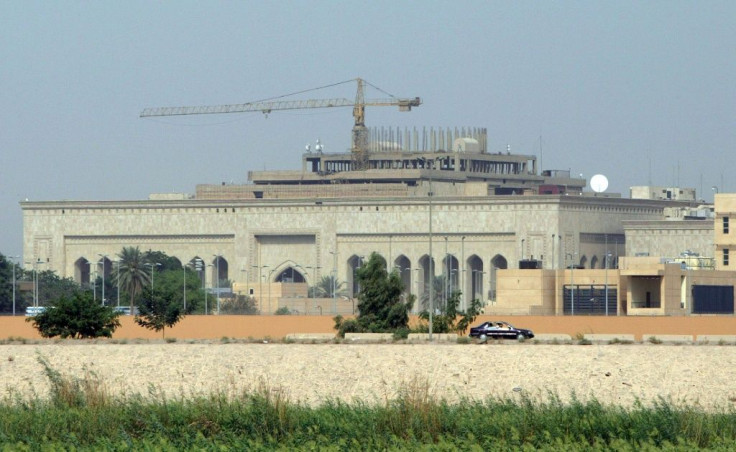Rockets Hit Near US Embassy In Iraq As Tensions Flare
A volley of rockets exploded near the US embassy in Baghdad Sunday, as tensions mount ahead of the anniversary of the US killing top Iranian general Qasem Soleimani on Iraqi soil.
AFP reporters in the capital's east heard at least five booms on Sunday night, followed by whistling sounds.
A few moments later, they heard thunderous rapid-fire sounds and saw streams of red flares in the dark sky, indicating the US embassy's C-RAM rocket defence system had been activated.
Iraq's security forces issued a statement saying the attacks caused material damage, but no casualties.
A security source told AFP at least three rockets landed near the US embassy in the high-security Green Zone, while two others hit separate residential neighbourhoods.
An Iraqi man living across the street from the US diplomatic mission in a high-security residential compound told AFP that his building was hit.
"Everyone is screaming and crying. My wife is losing it from all the terrifying sounds," he said, preferring to speak anonymously.
A member of parliament told AFP that his home had been hit by a rocket fragment, likely caused by the C-RAM's deflection or explosion of incoming rockets.
The US embassy and other foreign military and diplomatic sites have been targeted by dozens of rockets and roadside bomb attacks since the autumn of 2019.
Western and Iraqi officials have blamed hardline groups, including the pro-Iran faction Kataeb Hezbollah.
In October, these groups agreed to an indefinite truce, but Sunday's attack is the third apparent violation.
The first, on November 17, saw a volley of rockets slam into the US embassy and various parts of the Iraqi capital, killing one young woman.
On December 10, two convoys transporting logistical equipment for the US-led coalition helping Iraqi troops fight jihadists were targeted with roadside bombs.

The attacks have been claimed by groups that both US and Iraqi officials have described as smokescreens for well-known Iran-aligned armed factions in Iraq.
But in an unusual move, several factions condemned Sunday's attack.
Moqtada Sadr, a populist cleric and former militia leader, tweeted that "no one has the right to use weapons outside of the state."
Even Kataeb Hezbollah, which has been blamed for other attacks, issued an online statement.
"Bombing the (US) embassy of evil at this time is considered out of order," it said, while also condemning the US embassy's use of the C-RAM system.
The statement could be an attempt to calm tensions ahead of the anniversary on January 3 of the US drone strike that killed Soleimani and leading Iraqi paramilitary figure Abu Mahdi al-Muhandis.
Western and Iraqi officials told AFP they believe that Iran is looking to maintain calm ahead of US President Donald Trump's departure from the White House next month.
Trump has pursued a "maximum pressure" policy against Iran, an approach that has also squeezed its allies next door in Iraq.
Diplomats have feared a last-minute military action by the Trump administration on Iranian interests in Iraq, or a possible escalation by anti-US groups around Baghdad.
The US diplomatic mission has already partially withdrawn its staff due to security concerns, two senior Iraqi officials told AFP earlier this month.
They described the move as a "minor drawdown based on security reservations from the US side," and said it was not a rupture of diplomatic ties.
© Copyright AFP 2024. All rights reserved.




















